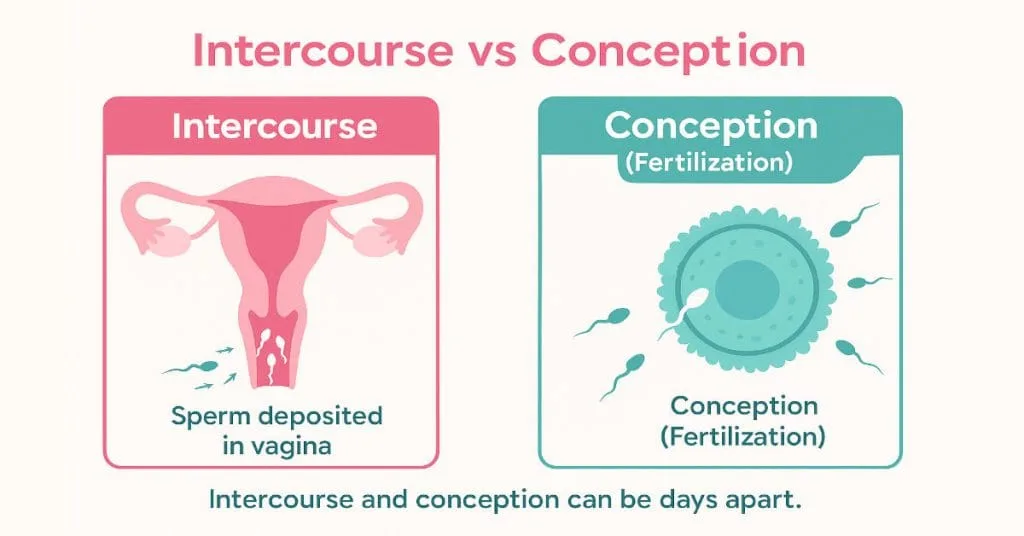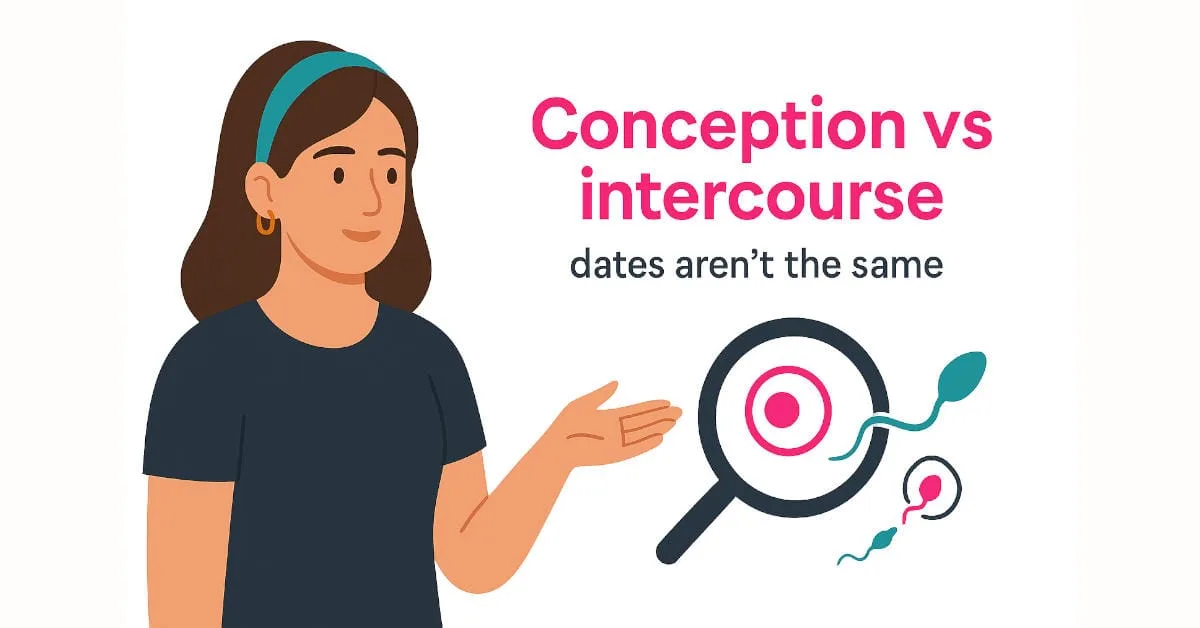Key points
- Conception means fertilisation near ovulation, not the day you had intercourse. The fertile window usually spans about six days and ends on ovulation day.
- Sperm can survive in the reproductive tract for up to about five days in the right cervical mucus, so intercourse before ovulation can still lead to conception later.
- Implantation happens later again, most often around 8 to 10 days after ovulation, although there is normal variation.
- Home urine tests usually turn positive only after implantation raises hCG, so accuracy is best on or after the first missed period for many people.
Quick converter: intercourse, conception, due date
Assumptions: this simple tool uses conception = intercourse + 2 days, and EDD = conception + 266 days. You can change the default 2-day offset in the code.
Tip: For a full calculator with options, open the Due Date from Conception or Intercourse tool.

What conception date means
Conception date is the day fertilisation occurs, usually within hours of ovulation in the fallopian tube. It normally lines up with the ovulation day, not the intercourse day.
Why intercourse date often differs
Sperm can live for up to about five days in supportive cervical mucus. This is why clinicians talk about a six day fertile window. If you have intercourse on Monday and ovulate on Thursday, fertilisation can occur on Thursday, several days after intercourse.
Implantation comes later
After fertilisation, the embryo travels to the uterus and implants. In many pregnancies, implantation happens around 8 to 10 days after ovulation, although earlier and later implantations can still be normal. Home urine tests detect hCG after implantation, so the first reliable day to test is often on or after the first missed period.
A simple timing example
- Intercourse: Monday
- Ovulation: Thursday
- Conception (fertilisation): Thursday
- Implantation: the following week, often around 8 to 10 days after ovulation
- First reliable urine test: on or after the first missed period for many people
Working out dates on this site
If you know your due date, you can work backwards to a likely conception and intercourse window with the reverse tool. If you have an early scan date and gestational age, you can set an estimated due date and cross check today’s weeks.
FAQs
Can the conception date ever match the intercourse date?
Yes. If intercourse occurs on ovulation day and fertilisation follows soon after, the dates can match. Often they do not, because sperm can survive in the tract for up to about five days and may fertilise the egg later in the fertile window.
Which date do clinicians use to date a pregnancy?
Clinicians usually date pregnancy from the first day of the last menstrual period or from an early ultrasound, then calculate the estimated due date from that. Conception based views can be useful for education but are not the standard for clinical dating.
When should I test?
Home urine tests are most reliable on or after the first missed period, because hCG rises only after implantation. Testing very early can give a false negative, even if conception has occurred.
Worried about a specific encounter?
You can use Pregnancy Chance After Unprotected Intercourse to explore a per incident estimate and timing for testing. It is an educational tool and does not replace speaking with a clinician or a local service if you are concerned.
Sources
- Wilcox AJ, Weinberg CR, Baird DD. Timing of sexual intercourse in relation to ovulation. N Engl J Med. 1995. PDF
- Wilcox AJ, Baird DD, Weinberg CR. Time of implantation of the conceptus and loss of pregnancy. N Engl J Med. 1999. PDF
- American College of Obstetricians and Gynecologists. Trying to get pregnant? Here is when to have sex. ACOG
- Office on Women’s Health. Pregnancy tests fact sheet. PDF
- Mayo Clinic. Home pregnancy tests: Can you trust the results? Mayo Clinic
This page is educational and is not medical advice. For personal recommendations, talk with a clinician who can review your history and test results.

